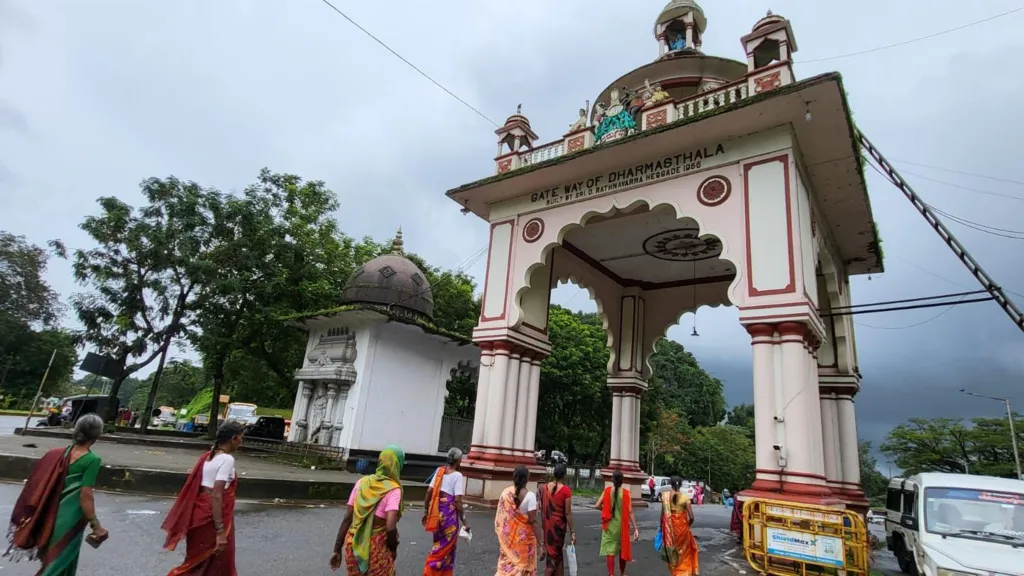Police in India have arrested a man who recently alleged that he had been coerced into burying hundred of bodies of women who were raped before being murdered.
His startling claims had thrown the tiny religious town of Dharmasthala in the southern state of Karnataka into turmoil.
Home to the centuries-old temple to Manjunatha Swamy - an incarnation of Shiva from the Hindu holy trinity - the town attracts thousands of pilgrims daily and is central to the fabric of local people's lives.
A political row in the state resulted in the government setting up a Special Investigation Team (SIT) to verify the man's allegations.
A SIT official who did not want to be named told the BBC on Saturday morning that the man "has been arrested for perjury".
In early July, the middle-aged man had lodged a police complaint and appeared before a magistrate to record his statement. His identity has been withheld and, so far, he has appeared in public dressed fully in black, including a hood and a face mask.
In the police complaint, the man said he worked as a cleaner at the temple from 1995 to 2014 - and alleged that he had been forced to bury the bodies of hundreds of girls and young women who were brutally raped and murdered.
He narrated five alleged incidents where he gave specifics, and said there were many others. Some of the victims, the man alleged, were minors.
He said he had been in hiding since 2014 and had returned and spoken up to silence his nagging conscience.
The cleaner did not name anyone but blamed the "temple administration and its staff" - allegations the temple chief rejected as "false and baseless".
When he was taken to the magistrate, the man went on to produce a human skull from his bag as evidence. He said it belonged to a body he had buried and that he had retrieved it recently from the spot.
"The skull and skeletal remains he produced are not brought from any spot in which he claimed to have buried the bodies,'' the SIT official said.
Saturday's arrest comes as a major turn in a saga that has set off a firestorm within the state and outside.
The allegations received intense media coverage.
After concerns were raised by the state's women's commission, the government launched a major criminal investigation and set up the SIT.
For the past several weeks, the team conducted excavations at locations in and around Dharmasthala to verify the man's claims. He had initially identified 13 spots - some of them in hard-to-reach areas covered by dense foliage and reportedly infested with venomous snakes.
Sources in the SIT confirmed to the BBC that human remains, including a skull and nearly 100 bone fragments, have been found at two of the spots and had been sent for forensic testing. It is not clear who they belong to.
The allegations also put the spotlight on the influential Heggade family - hereditary administrators of the temple.
In a statement to the BBC, chief administrator Veerendra Heggade, an MP in the Indian parliament's upper house who received the country's second highest civilian award Padma Vibhushan in 2015, welcomed the SIT inquiry.
The temple "really appreciates the government for appointing the SIT for investigating the alleged unnatural deaths claimed to have occurred in and around Dharmasthala", he wrote.
